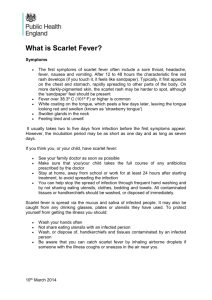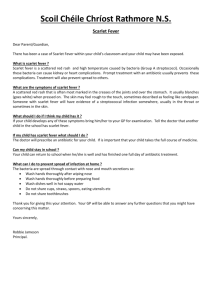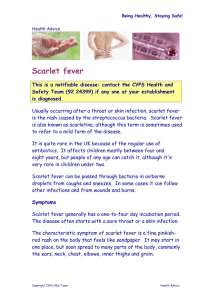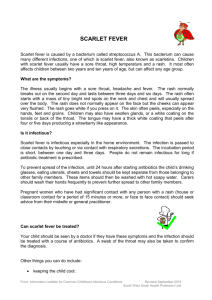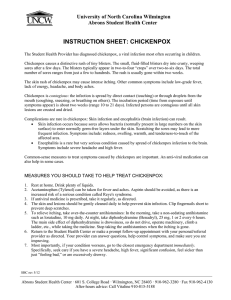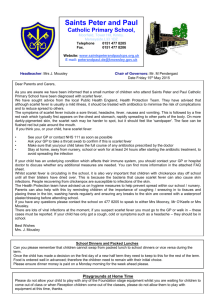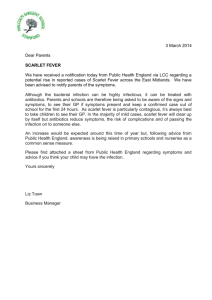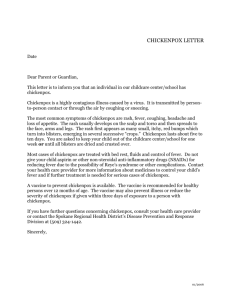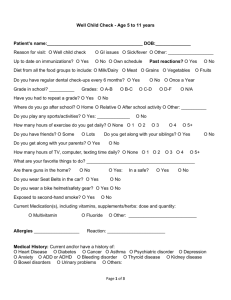12 03 15 Chickenpox and Scarlet Fever
advertisement
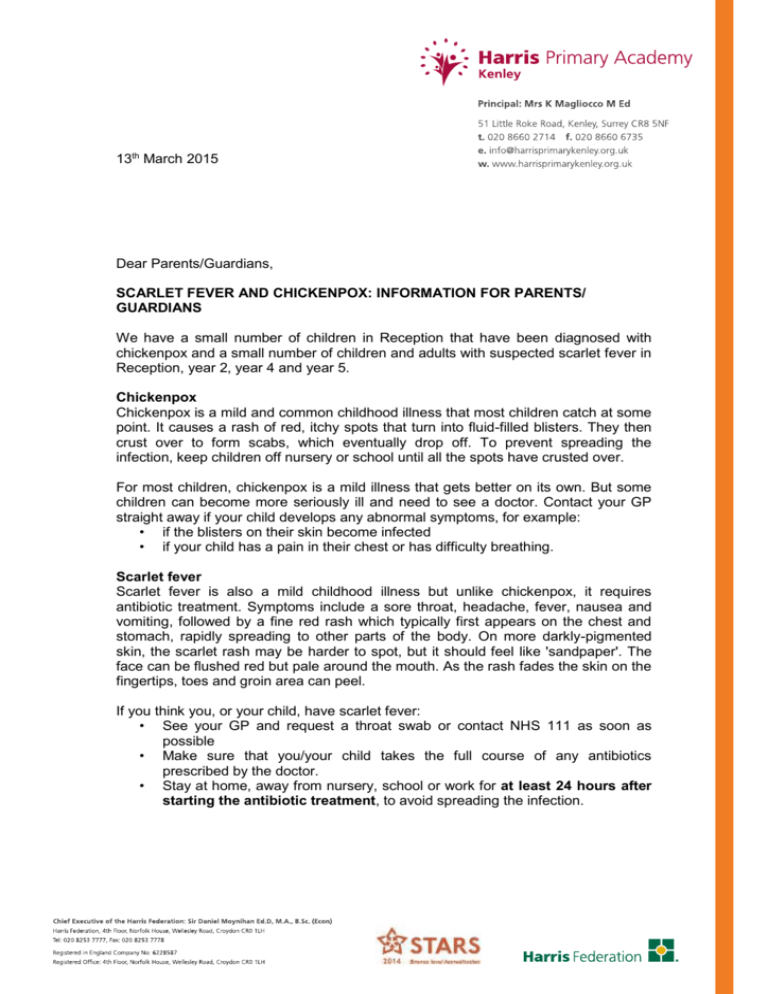
13th March 2015 Dear Parents/Guardians, SCARLET FEVER AND CHICKENPOX: INFORMATION FOR PARENTS/ GUARDIANS We have a small number of children in Reception that have been diagnosed with chickenpox and a small number of children and adults with suspected scarlet fever in Reception, year 2, year 4 and year 5. Chickenpox Chickenpox is a mild and common childhood illness that most children catch at some point. It causes a rash of red, itchy spots that turn into fluid-filled blisters. They then crust over to form scabs, which eventually drop off. To prevent spreading the infection, keep children off nursery or school until all the spots have crusted over. For most children, chickenpox is a mild illness that gets better on its own. But some children can become more seriously ill and need to see a doctor. Contact your GP straight away if your child develops any abnormal symptoms, for example: • if the blisters on their skin become infected • if your child has a pain in their chest or has difficulty breathing. Scarlet fever Scarlet fever is also a mild childhood illness but unlike chickenpox, it requires antibiotic treatment. Symptoms include a sore throat, headache, fever, nausea and vomiting, followed by a fine red rash which typically first appears on the chest and stomach, rapidly spreading to other parts of the body. On more darkly-pigmented skin, the scarlet rash may be harder to spot, but it should feel like 'sandpaper'. The face can be flushed red but pale around the mouth. As the rash fades the skin on the fingertips, toes and groin area can peel. If you think you, or your child, have scarlet fever: • See your GP and request a throat swab or contact NHS 111 as soon as possible • Make sure that you/your child takes the full course of any antibiotics prescribed by the doctor. • Stay at home, away from nursery, school or work for at least 24 hours after starting the antibiotic treatment, to avoid spreading the infection. Complications Children who have had chickenpox recently may develop a more serious infection if they also catch scarlet fever. Parents should watch out for symptoms such as a persistent high fever, signs of skin infection and joint pains. If you are concerned for any reason please seek medical advice immediately. If your child has an underlying condition which affects their immune system, you should contact your GP or hospital doctor to discuss whether any additional measures are needed. You can find more information on scarlet fever in the attached FAQ sheet, and on chickenpox and scarlet fever on NHS choices: www.nhs.uk . Further advice can also be obtained from the South West London Health Protection Team on 0844 326 2052 during office hours. If you are at all worried, please do not hesitate to speak to Mrs Magliocco or Mrs Morris. Best Wishes Mrs K Magliocco Principal
